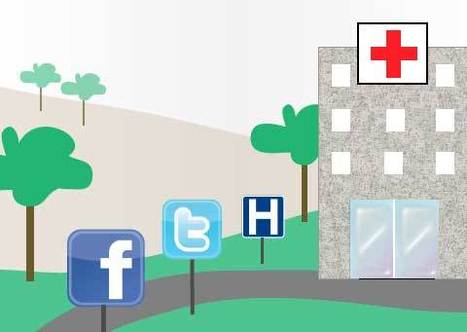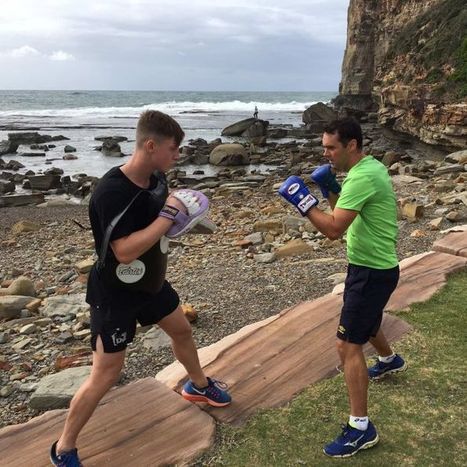The internet is currently the largest source of information and with it comes the world of social media.
Many people use social media for personal and business purposes because of the many benefits in using these networking applications. Social networking creates a ripple effect that allows people and businesses to share information, insights, and communicate far and wide.
Social media also gives you the ability to easily communicate with patients and peers, and provide your own content for target marketing and education. And maintaining a consistent social media presence makes your practice visible to patients and potential patients in a cost-effective manner. In this way, you can increase transparency and promote your brand, while patients and others learn more about your business.
However, if your communication on social networks is inappropriate, unethical, or unprofessional, or if you publically share unauthorized information, that ripple effect works the same way. But in that case it can be harmful to others and can (and will) directly reflect on you and your practice.
Before looking at these guidelines, first be clear about what social media is and the common vehicles for social media for both personal and professional communications. Some common examples you are likely familiar with include Facebook, Twitter, Instagram, YouTube, LinkedIn, and blogs, among others.
Risky business
Social media is part of daily life because most people have to use computer programs. And you don’t even need a personal computer—social media applications for cellphones allow for access on the go. Given the popularity of social media, it is crucial for you to have a clear and detailed social media policy. Doing so will best guide your workforce, while protecting you, your patients, and your practice.
According to the Federation of State Medical Boards (FSMB), approximately 90 percent of healthcare providers are on social media for personal use and almost 70 percent of are on social media professionally.
Additional research indicates that 35 percent of practicing physicians have received personal friend requests from patients and their family members. Furthermore, analysis of healthcare provider blogs revealed that nearly 20 percent of postings included enough information to identify patients.
Because of the magnitude of lurking dangers from social media use that can have an array of lasting adverse effects, medical boards are taking active interest in social media use.
According to a 2010 medical board survey, a disturbing 90 percent of medical boards indicated that violations of online professionalism had been reported within their jurisdiction. As you would expect, many of these violations resulted in disciplinary actions.
In response to these violations, 70 percent of boards held formal disciplinary proceedings and 40 percent issued informal warnings. Outcomes of these disciplinary actions included: license limitation (44 percent), license suspension (30 percent), and revocation of licensure (20 percent).
Although there is no way to identify and predict all possibilities for inappropriate social media use, there are common themes that result in sanction. These include the following:
Inappropriate communication with patients or employees onlineUse of the internet for unprofessional behaviorOnline misrepresentation of credentialsOnline violations of patient confidentialityFailure to reveal conflicts of interest onlineOnline derogatory remarks regarding a patientOnline depiction of intoxicationDiscriminatory language or practices onlineLong-lasting repercussions
Once information is posted online, you rarely have control over it. It can be copied, shared, dissected, disseminated, and otherwise used without your permission—and without your knowledge. Consider this when determining your practice’s social media policy.
There is also the risk of misinterpretation or misrepresentation and, therefore, online postings may need a disclaimer that makes it clear that the information shared is not to be interpreted as personal medical advice.
To minimize inappropriate social networking behaviors, the FSMB, as well as the American Medical Association, offers guidance regarding social media use. Providers are encouraged to create and regularly review policies to achieve the following:
Protect the privacy and confidentiality of patients. Strictly adhere to federal privacy laws such as HIPAA.Avoid responding to requests for online healthcare advice.Consider boundaries to prevent creating the expectation that doctors will always reply to questions and comments.Act with professionalism.Be forthcoming about employment, credentials, and conflicts of interest.Be aware that information posted online may be available to anyone and could be misconstrued.Identify how your practice will mitigate problems, should unprofessional content be posted. Providers are discouraged from interacting with current or past patients on social networking sites. Understandably, there may be exceptions but use good judgment when accepting friend-type requests from patients and their friends and family.Avoid discussing treatment on social sites. It is unsecure and non- compliant with HIPAA privacy and security rules.Avoid soliciting people. They should seek you out. Use business cards, brochures, and other social media networking techniques to build your network rather than sending random “friend” requests to people.Do not discuss topics that lie outside your scope of practice.Do not post personal data on a professional or business social networking page or application.Additional tips for establishing your practice social media policy:Keep personal and practice social media accounts separate.Understand that social media privacy settings are not foolproof. Once information is posted online, it’s theoretically permanent.Even if you have a staff member who monitors social media for your practice, check your online presence regularly to ensure information is accurate and professional.Set clear boundaries
You should not dictate to employees how their own personal social media is used. Instead, be clear as to what, in regard to your business and your patients, is not permitted to be posted.
Remind employees that the language and demeanor they use when posting, reposting, or responding on social media should be appropriate for the entire audience likely or able to view the post. Their own professional reputation may be adversely impacted by inappropriate social media actions. Encourage employees to avoid friending or following patients on a personal basis.
Social media is a relatively new method of communicating. The guid- ance currently set forth is only a starting point. Establish additional guidelines over time as needed. Check with your own state organizations to learn if any state-specific guidance is available.
As a general rule of thumb, if you’re not sure about it, don’t post it. Your online actions and content can adversely affect your professional reputation and career, and impair public trust in the healthcare profession.
Via
Plus91 





 Your new post is loading...
Your new post is loading...



































Learn more / En savoir plus / Mehr erfahren:
http://www.scoop.it/t/21st-century-learning-and-teaching/?tag=collective+intelligence